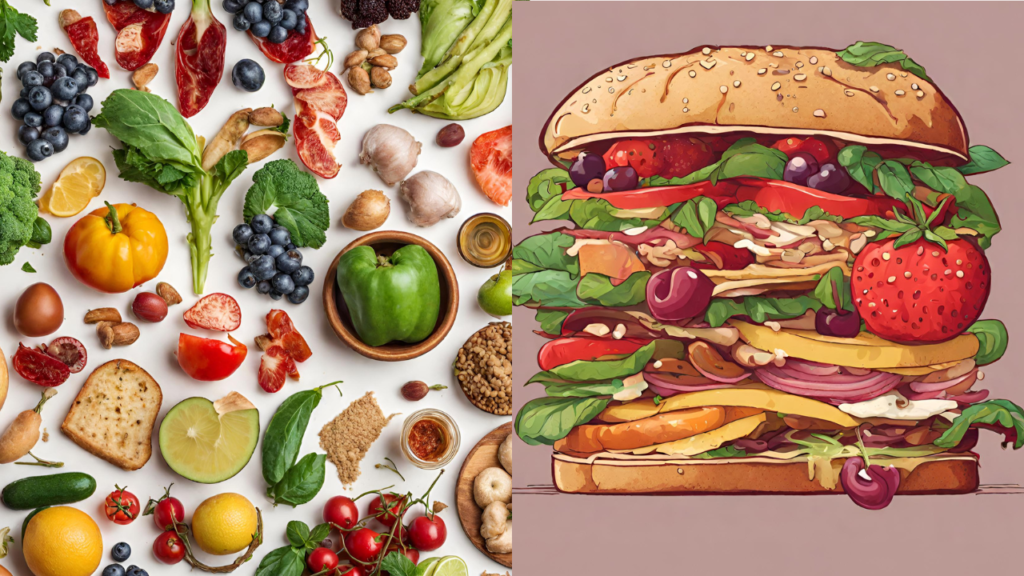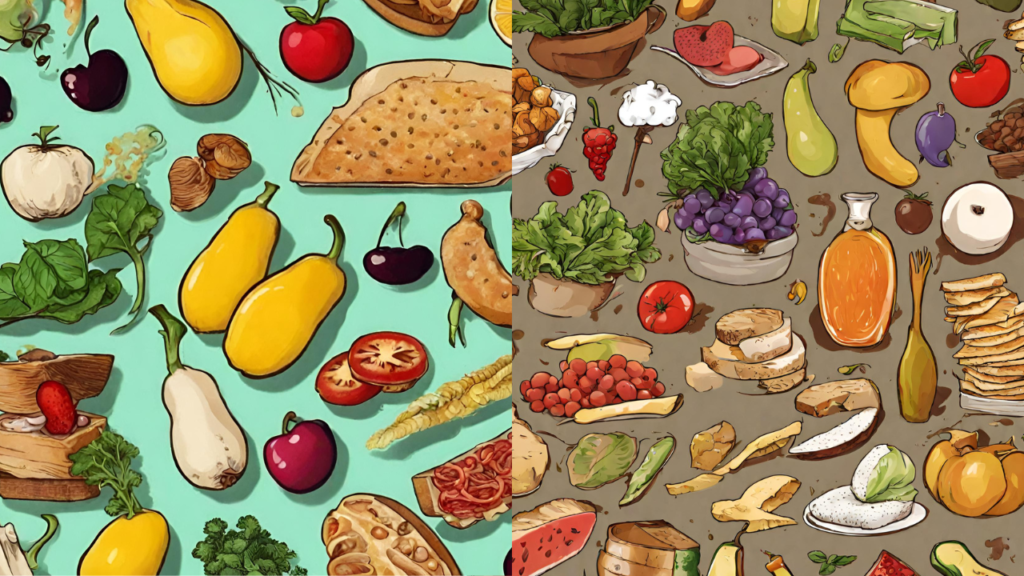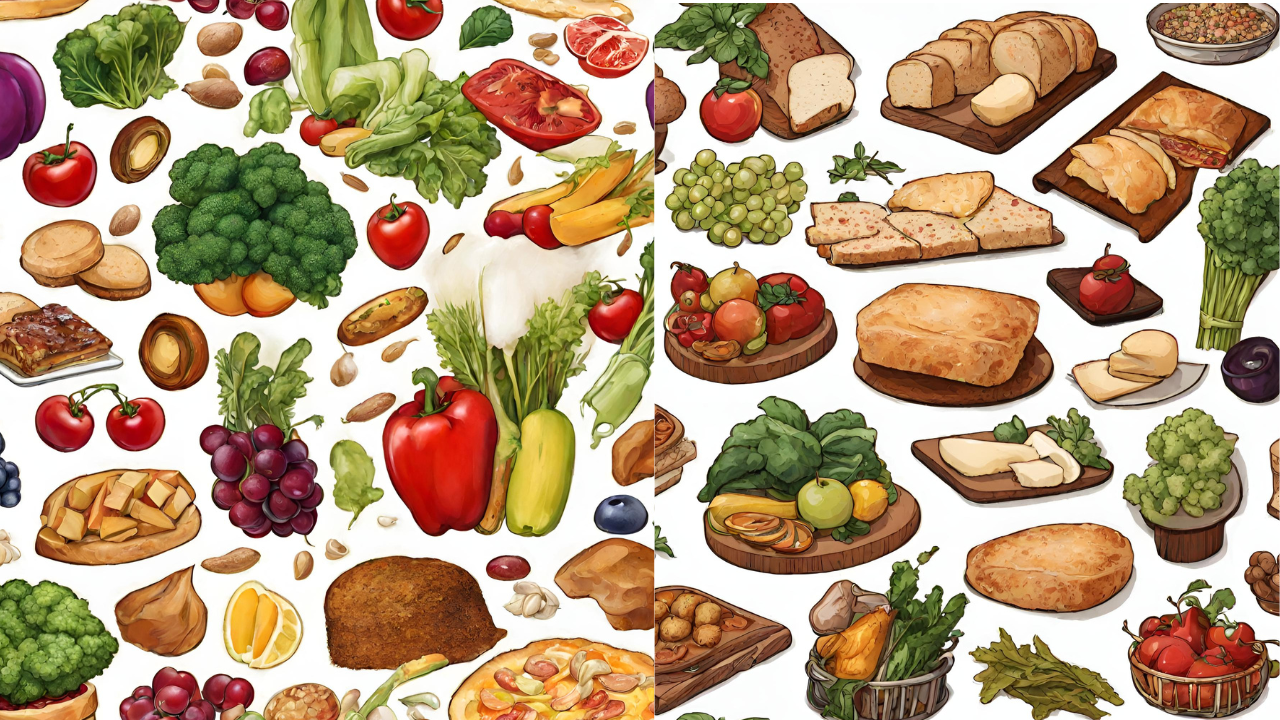SEO Meta Description
Discover the reality behind prevalent food myths in 2024 with our comprehensive article. Uncover the truth behind common misconceptions about nutrition, dieting, and health.
Introduction
In the fast-paced world of nutrition and wellness, myths about food abound. From miracle diets to superfoods, separating fact from fiction can be challenging. In this article, we delve deep into the most prevalent food myths of 2024, uncovering the truth behind them with scientific evidence and expert insights. Whether you’re seeking clarity on gluten, sugar, or the latest dietary trends, this guide will equip you with the knowledge needed to make informed choices about your diet and lifestyle.
Table of Contents
Gluten: Friend or Foe?
The Gluten-Free Craze: Debunking Misconceptions
Understanding Celiac Disease and Gluten Sensitivity
Gluten-Free Doesn’t Mean Healthy: The Pitfalls of Processed Foods
Sugar: The Sweet Truth
The Lowdown on Added Sugars
Natural vs. Added Sugars: Is There a Difference?
Breaking Down Sugar Substitutes: Are They Safe?

Dietary Fads: Fact or Fiction?
Keto Diet: Hype vs. Reality
Intermittent Fasting: Separating Myth from Science
Plant-Based Diets: Myths and Realities
Superfoods: Separating Hype from Reality
The Truth About Superfoods
Examining the Evidence: Do Superfoods Really Boost Health?
Incorporating Superfoods into a Balanced Diet
Organic vs. Conventional: Navigating the Grocery Aisles
Understanding Organic Certification
Are Organic Foods Really Better for You?
The Environmental Impact of Organic and Conventional Farming
Food Labels: Decoding the Jargon
Reading Between the Lines: Understanding Food Labels
Common Labeling Myths Debunked
Nutrition and Aging: Separating Fact from Fiction
Nutritional Needs as We Age
Anti-Aging Foods: Myth or Reality?
The Role of Nutrition in Longevity
Diet and Disease: Exploring the Connection
The Impact of Diet on Chronic Disease
Dispelling Myths About Cancer and Diet
Heart-Healthy Eating: Tips for Prevention
Hydration: More Than Just Water
Debunking Myths About Hydration
The Importance of Electrolytes
Hydration Beyond H2O: Foods That Hydrate
Food Allergies and Intolerances: Navigating Dietary Restrictions
Understanding Food Allergies vs. Intolerances
The Rise of Food Sensitivities: Fact or Fad?
Coping Strategies for Individuals with Food Restrictions
Meal Timing: Does It Really Matter?
The Science Behind Meal Timing
Dispelling Myths About Late-Night Eating
Optimizing Meal Timing for Energy and Performance
Food and Mood: The Gut-Brain Connection
Exploring the Gut Microbiome
The Impact of Diet on Mental Health
Foods That Boost Mood and Cognitive Function

Food Safety: Separating Fact from Fear
Common Food Safety Myths Debunked
Navigating Food Recalls and Contaminants
Tips for Safe Food Handling at Home
Food Politics: The Influence of Industry
Understanding Food Lobbying and Regulation
The Role of Big Food in Shaping Dietary Guidelines
Advocating for Transparency and Accountability
Sustainable Eating: The Future of Food
The Environmental Impact of Food Production
Plant-Based Eating for a Sustainable Future
Reducing Food Waste: Tips for Consumers
FAQs
Are gluten-free diets healthier?
While necessary for individuals with celiac disease or gluten sensitivity, gluten-free diets aren’t inherently healthier for the general population.
Is sugar-free always a better option?
Not necessarily. Sugar-free products often contain artificial sweeteners, which may have negative health effects when consumed in excess. Moderation and balance are key.
Do superfoods exist?
While certain foods are nutrient-dense and beneficial for health, there’s no single food that can cure all ailments or provide all necessary nutrients.
Is organic food worth the higher price?
Organic food may have lower pesticide residues and be better for the environment, but it’s not always more nutritious. Whether it’s worth the higher price depends on personal values and priorities.
Does meal timing affect weight loss?
While meal timing can influence hunger and energy levels, it’s not the most significant factor in weight loss. Total calorie intake and food quality play more significant roles in achieving and maintaining a healthy weight.
How can I eat sustainably on a budget?
Eating sustainably doesn’t have to break the bank. Choosing seasonal produce, buying in bulk, and reducing food waste are just a few ways to eat sustainably while sticking to a budget.
Conclusion
In a world saturated with conflicting information about food and nutrition, separating fact from fiction is essential for making informed choices about our health and well-being. By debunking common food myths and exploring the science behind them, we can empower ourselves to nourish our bodies and minds effectively. Remember, the truth about food is often simpler than we think. So, the next time you encounter a sensational headline or a trendy diet craze, take a moment to dig deeper and uncover the real story behind it.
